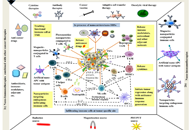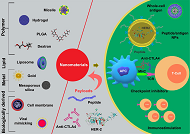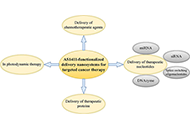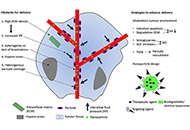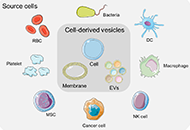
Nanomedicine and Cancer Immunotherapy
Guest Editors
Dr. Haijun Yu E-Mail
Principal Investigator, Shanghai Institute of Materia Medica, Chinese Academy of Sciences, Shanghai, China
Research Keywords: Nanomedicine, immunotherapy, drug delivery, gene therapy, biomedical engineering
Dr. Yang Shi E-Mail
Group Leader, Institute for Experimental Molecular Imaging, RWTH Aachen University Clinic, Helmholtz Institute for Biomedical Engineering, Aachen, Germany
Research Keywords: Nanomedicine, immunotherapy, tumor targeting, biomaterials, biomedical engineering
About the Special lssue
Immunotherapy has shifted the paradigm of cancer research and management both in laboratory and clinic. Cancer immunotherapy with immune checkpoint inhibitors or small molecular agonists has been employed to initiate systemic and sustainable antitumor immune response for tumor regression and metastasis suppression. However, the therapeutic benefits for cancer immunotherapy are impaired by the moderate response rate and severe immune-related reverse effects. The advances of caner nanomedicine show promising potential for improving cancer immunotherapy by optimizing the pharmacokinetic profiles of immune modulators and co-delivery of multiple therapeutic agents.
In this special issue of “Nanomedicine and Cancer Immunotherapy”, we welcome both review articles and original research papers to summarize the most recent advances of nanomedicine for cancer vaccination, improved delivery of tumor antigen, delivery of small molecular immune modulators, etc. This special issue should be of high impact improving the understanding and clinical translation of nano-immunotherapy.
Keywords: Nanomedicine, cancer immunotherapy, tumor immune microenvironment, drug delivery, adaptive immune response, innate immune response
Published Articles
